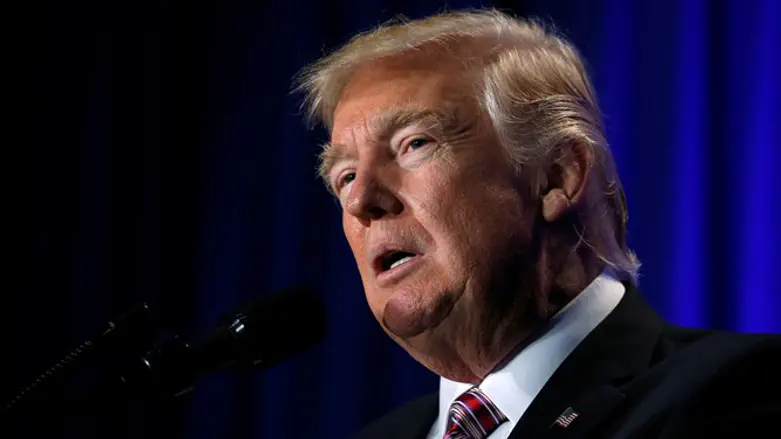
Establishment Jewish organizations in the US were quick to pin the blame for a recent spate of bomb threats against Jewish institutions on the election of Donald Trump, his supporters, and even the president himself.
The claim was made despite a dearth of evidence that the president, his entourage, or his supporters were actually responsible, directly or indirectly, for the uptick in anti-Jewish harassment. That did little, however, to dampen the oft-repeated claim by left-leaning media outlets and establishment Jewish groups that Trump’s election and the legitimization of a vaguely defined “Alt-Right” somehow encouraged anti-Semitic activity.
Since then, however, neither of the two individuals arrested in March for the wave of bomb threats appear to have any ties to the Alt-Right, nor do they appear to be supporters of the president. One, Juan Thompson, is an African American journalist with ties to the far-left; the other, an American-Israeli teenager with alleged mental issues who may have been paid for foreign sources for his efforts.
Despite this, apologies to the president from his accusers have not been forthcoming.
Republicans Overseas Israel chairman Marc Zell says the reluctance of mainstream American Jewish groups to apologize for or at the very least retract their claims against the president and his supporters is hardly surprising, given their broader ideological bent.
“They didn’t apologize and I don’t expect them to,” Zell told Arutz Sheva, “because the overwhelming majority of the [Jewish] leadership in the US is playing political games to benefit the Democrats.”
“They thought they had some basis to accuse the [Trump administration], only to discover that most of the cases they were complaining about were in fact self-inflicted Jewish-on-Jewish [threats],” added Zell, referencing the American-Israeli teenager now in custody in Israel for hundreds of threats.
“They have a political agenda. Seventy percent of the American Jewish community votes for the Democrats each election. They need to understand that they also have an interest to vote for the Republicans.
“A revolution in Israel-US relations”
Turning to the Trump administration’s policy vis-à-vis Israel, Zell told Arutz Sheva that despite wavering by Trump on his campaign promise to relocate the US Embassy to Jerusalem and reports suggesting the White House was pursuing broad limitations on Jewish construction in Judea and Samaria, he remained optimistic.
“There’s been a revolution in American policy towards Israel since Trump entered the White House. You can see the change in that after 60 years, the US is no longer dictating to Israel what to do in the Land of Israel,” said Zell.
“The US is prepared to honor Israeli decisions; but more importantly the US wants to work together with Israel to deal with the critical problems facing our region – and that means Iran. [Iran] is the problem of the US and of the Sunni states, so we need to work together on this.”
Zell argued that this collective effort to confront Tehran influenced recent talks between Israel and the White House over the parameters of Israeli construction in Judea and Samaria.
“The consultations between Israel and the US regarding Jewish settlement in the Land of Israel are part of this issue [Iran]. We don’t want to do things publicly that harm the regional cooperation against Iran. We need to build quietly – not everything needs to be made into a media issue.”
“Move the US Embassy to Jerusalem – quietly”
While the White House has remained mum on the issue of relocating the embassy in Israel to Jerusalem, Zell said prospects for the move remain good, but argued that the transfer needed to take place quietly.
“There are some [Israeli] officials who want to hold a [public] celebration in May or June, when the waiver permitting a delay in implementing [a 1995] US law [requiring] moving the embassy will expire,” said Zell, referring to a security provision used by presidents Clinton, Bush, and Obama to avoid compliance with the Jerusalem Embassy Act of 1995.
While Trump could again invoke the security clause and defer the relocation again, Zell suggested the president would let the last deferment expire, then quietly move the embassy.
“There’s no need [to celebrate it]. We’ll make the move quietly, without any fanfare or ceremony.”
“But if people make noise [during the move], there will be serious consequences for regional cooperation.”